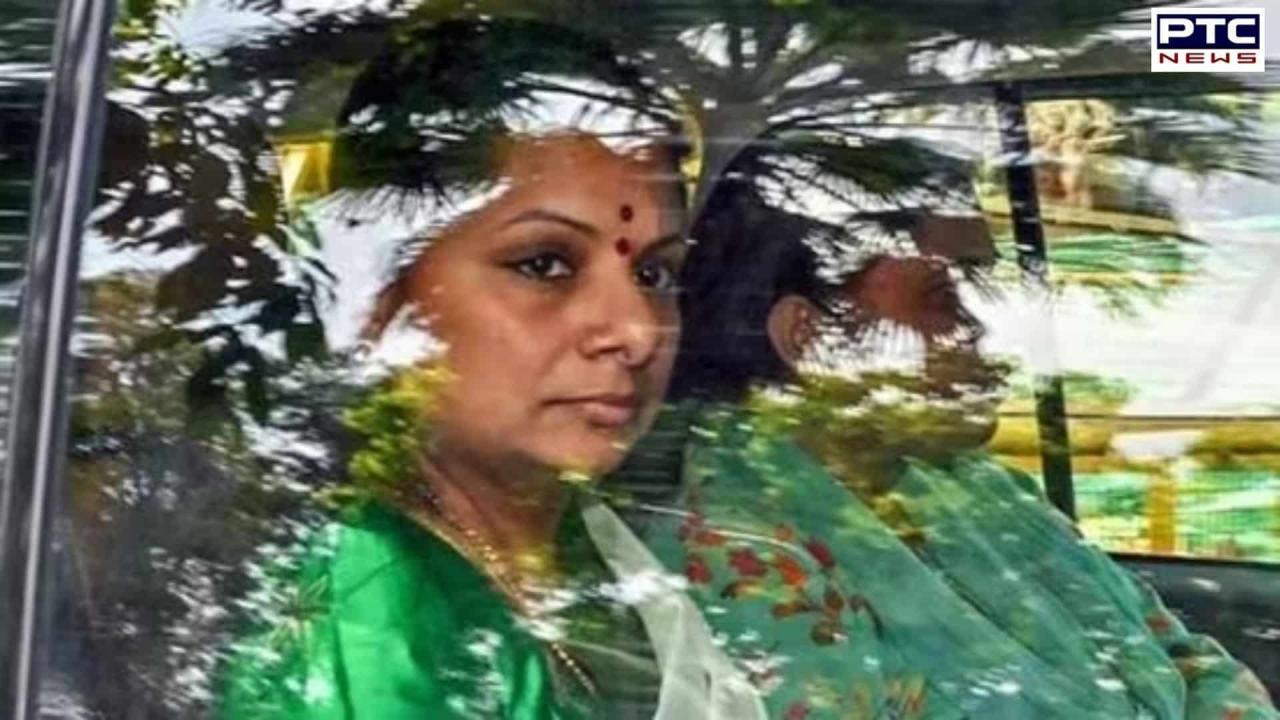

Supreme Court grants bail to BRS leader K Kavitha in Delhi liquor policy case
PTC News Desk: On Tuesday, the Supreme Court granted bail to K Kavitha, a leader of the Bharat Rashtra Samithi (BRS) and the daughter of former Chief Minister K Chandrasekhar Rao. Kavitha was arrested in March by the Enforcement Directorate (ED) and later by the Central Bureau of Investigation (CBI) in connection with the Delhi liquor policy case.
During the bail hearing on Tuesday morning, the Supreme Court focused on two main issues: the use of mobile phones and the practice of deleting messages, as well as the definition of a "vulnerable woman" in the context of considering release from custody.
K Kavitha, who has served as a Member of Parliament, was first arrested by the ED in March concerning the alleged scam in the Delhi liquor policy. The CBI arrested her again a month later. In July, her plea for bail was denied by the Delhi High Court, which deemed her to be a primary accused and stated that the investigation was at a "crucial stage," making bail inappropriate. The High Court also dismissed her argument for bail on the grounds of being a woman, noting that as an educated individual and former MP, she did not qualify as "vulnerable."
Senior advocate Mukul Rohatgi, representing K Kavitha, argued that it is common practice to grant bail to women. He highlighted that Kavitha had already been in jail for over five months, despite neither the ED nor the CBI recovering the alleged ₹100 crore bribe paid by the so-called 'South group' to the Aam Aadmi Party (AAP) in exchange for liquor wholesale licenses.
"She is a former MP, and there is no risk of her fleeing. It is normal practice for women to be granted bail," Rohatgi asserted. However, the court responded, "She is not a 'vulnerable' woman."
Rohatgi further contended that there had been no recovery of the alleged bribe money and that claims she threatened a witness were unsubstantiated. "The allegation is based solely on hearsay," he said.
The prosecution argued that K Kavitha had deleted text messages from her mobile phone, which they considered crucial evidence, and accused her of reformatting the device. In June, authorities alleged that she had wiped data from eight mobile phones and reformatted at least one.
K Kavitha denied these accusations. Her lawyer, Mr. Rohatgi, dismissed the ED's claims as baseless. "How can they say I 'destroyed' my phone? People change phones all the time. I just changed my phone," he argued.
The prosecution countered by questioning the circumstances under which Kavitha allegedly gave one of the reformatted phones to her maid, suggesting this could amount to tampering with evidence. They also raised doubts about how a phone used by a senior political figure for several months could contain no messages. "On examination, the phone had no data despite being in use for four to six months," the prosecution noted.
The Supreme Court, however, remained skeptical of the prosecution’s arguments regarding deleted messages. "People do delete messages; it's normal conduct. Many of us in this room do it," Justice KV Viswanathan remarked. The prosecution replied, "But you don’t delete contacts or call history."
Ultimately, the Supreme Court decided to grant K Kavitha bail, citing the lack of conclusive evidence to justify her continued detention.
Also Read: After UPI, RBI to launch ULI; here's all you need to know about Unified Lending Interface
- With inputs from agencies
